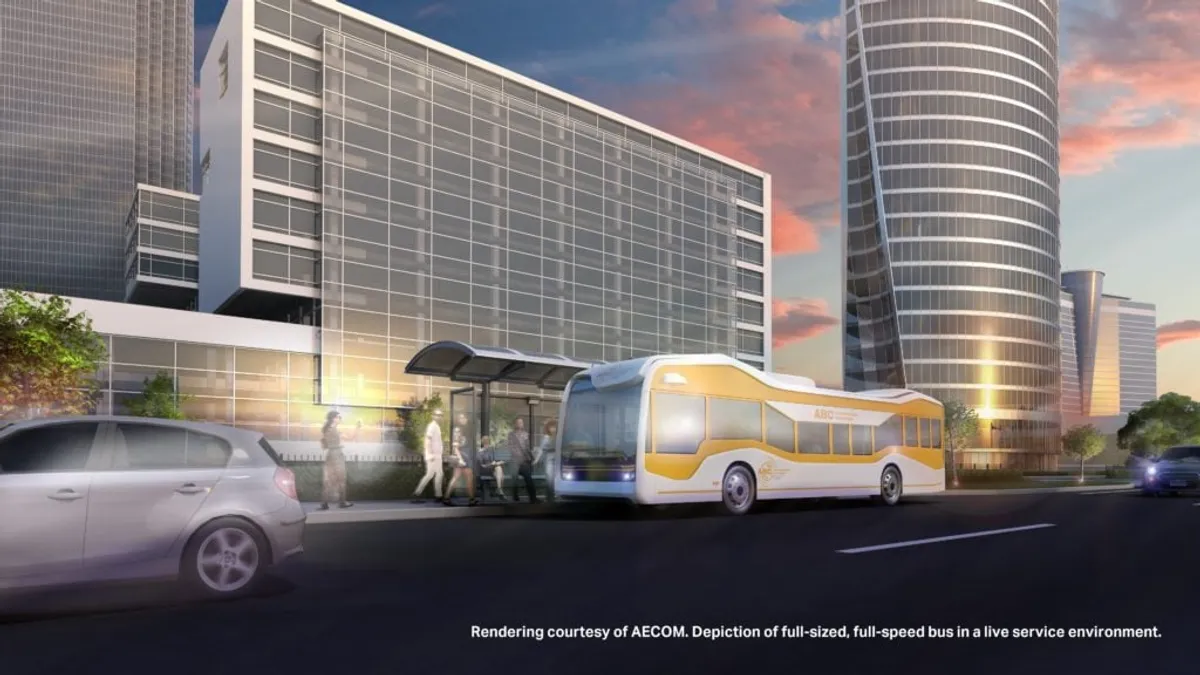Dive Brief:
- Nearly a dozen local transit agencies have joined the Automated Bus Consortium, a group created by AECOM to accelerate the deployment of driverless bus pilot programs throughout the country. Founding members include Dallas Area Rapid Transit, Los Angeles County Metropolitan Transportation Authority and the Metropolitan Atlanta Rapid Transit Authority, among others.
- The consortium is expected to purchase 75 to 100 full-sized, autonomous buses that will run at full speed in real service environments. The consortium will identify potential routes, operating plans, automated bus specifications, financial plans and deployment strategies. AECOM will manage the planning, assessment, implementation and evaluation.
- The plan calls for a 12-month feasibility phase and implementation within two years. The implementation is currently slated for 2021-2022.
Dive Insight:
The transit agencies will gather in September to meet technology companies and bus manufacturers that could devise and match driverless bus specifications for each region's pilot program.
After the one-year pilot is complete, agencies will make their own decisions about buying and deploying automated buses going forward.
The hefty up-front expense of investing in new equipment and ideas can be a deterrent for innovation within transit agencies and cities. But a group allows participants to leverage their collective buying power. Purchasing items in bulk generally lessens the capital expense per item, and participating in a nationwide consortium removes the burden of agencies trying to find willing partners within the same region.
Agencies in the consortium are expected to share experiences and best practices. Knowledge-sharing can speed project deployment and lead to greater success, especially on topics like safety and operations.
The consortium touts itself as a first-of-its kind approach. Although this group's focus is driverless buses, the concept could apply to other high-cost city technologies such as electric buses.











